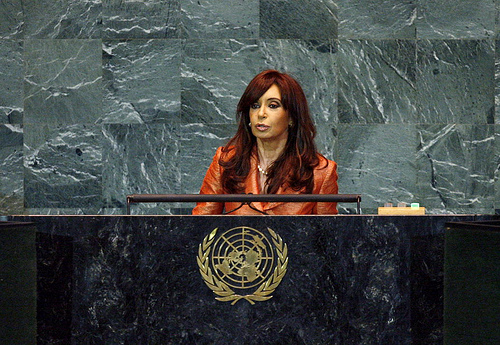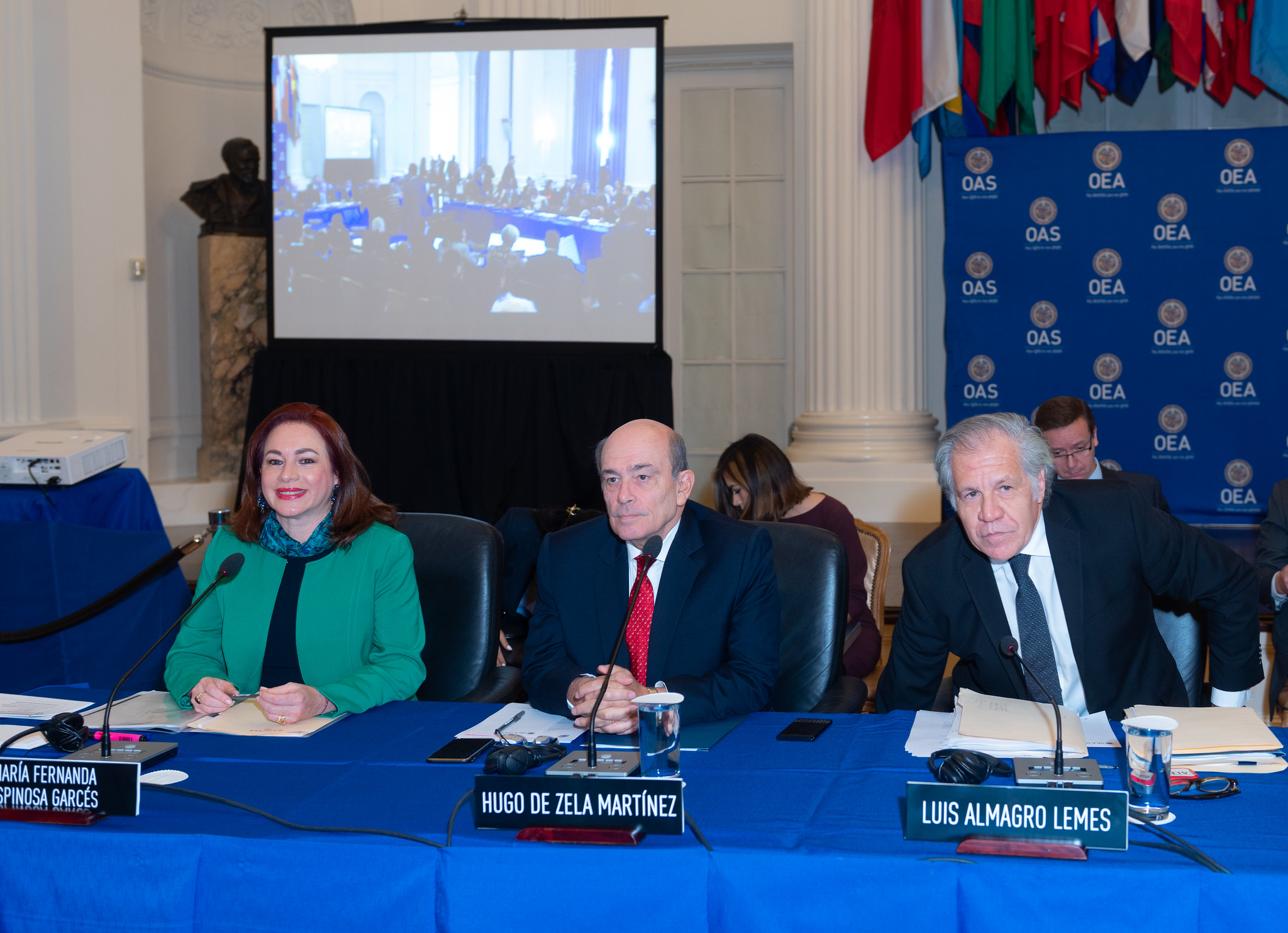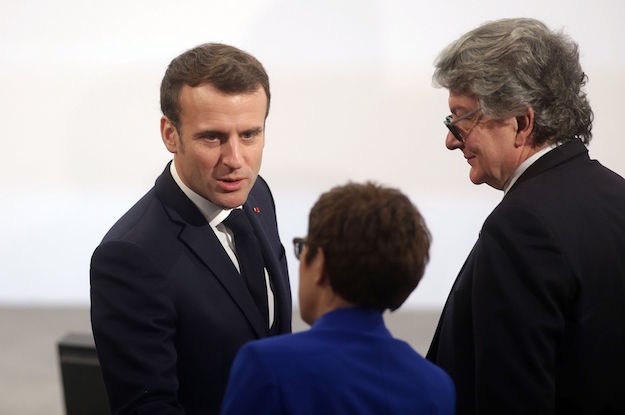Last Friday, the International Monetary Fund (IMF) Board of Governors voted to censure Argentina for failing to revise its widely-disputed inflation data. Censure by the IMF is historic for a G20 member—having never occurred previously—and will likely harm Argentina’s already-limited access to foreign capital. If Argentina does not provide new inflation data and implement “remedial measures” stipulated by the IMF by September 29, 2013, the country could face further sanctions, including expulsion.
But the IMF is not the only adversary that the Argentine government is currently facing, and Argentina’s censure by the Washington-based lender further underscores other challenges looming on the country’s horizon. If Argentine President Cristina Fernández de Kirchner can afford to ignore the IMF, the same cannot be said of Argentina’s legal battle over sovereign debt restructuring.
Since 2010, approximately 92 percent of Argentina’s total debt of $136 billion (or 44 percent of GDP) has been restructured—something the Argentine government hails as a great justice, since most of the debt was incurred during Argentina’s years of military dictatorship. However, the limited number of “holdouts” who refused the renegotiated terms are now involved in a legal tug-of-war over whether Argentina can continue to pay renegotiated bondholders without paying them first. While the holdouts on the debt only represent a small percentage of its entire value, their demands to be paid on equal footing as the other bondholders could force Argentina into default.
Ripple effect on debt renegotiations
The October 2012 court ruling obtained by hedge fund NML Capital to impound the Argentine navy frigate ARA Libertad in the Ghanaian port of Tema—eventually overturned in December by order of the UN International Tribunal for the Law of the Sea— has been the most spectacular episode in the long-running feud between the Argentine government and the so-called “vulture funds.” The quarrelling parties will reconvene in court on February 27 for what some experts are now calling “the trial of the century in sovereign debt restructuring.”
The holdouts claim that under a pari passu clause—a legal stipulation promising equal treatment of creditors—included in the sovereign bond issuances, they are entitled to payment at the same time as other bondholders, a claim upheld by Judge Thomas P. Griesa in the federal district court for the Southern District of New York. Argentina is appealing that ruling in the U.S. Second Circuit Court of Appeals, but if it fails, the country could be forced to put $1.33 billion into escrow for the holdouts before it could continue paying the other bondholders.
The United States government has expressed concern about Judge Griesa’s interpretation of the pari passu clause. In an amicus brief, it said that the ruling may not only have negative ramifications for Argentina, but also set a legal precedent complicating sovereign debt renegotiations globally. If holdouts are vindicated in the Argentine case, it is possible that future bondholders will be more likely to reject proposals for debt restructuring. This has led analysts to call for the revival of the IMF-sponsored Sovereign Debt Restructuring Mechanism (SDRM), a bankruptcy regime for countries intended to make defaults proceed more smoothly when they are necessary and to protect against creditor litigation during the debt restructuring process.
To succeed, the SDRM would need significantly more political support than it obtained in 2002, when former Deputy Managing Director of the IMF Anne Krueger first suggested it. The United States’ backing would be especially crucial, but granting an international organization precedence over national sovereignty would not seem to align with U.S. policy.
What’s on the horizon?
Aside from the global implications for sovereign debt renegotiations, Argentina’s outlook under the Damocles’ sword of the holdouts is unfavorable, to say the least. Yet the multiple challenges facing Argentina have not led to any noticeable change in INDEC’s data reporting or the Fernández de Kirchner administration’s position that Argentina’s national sovereignty is under threat. The Argentine president has issued a flurry of strong-worded statements criticizing both the IMF and the “vulture funds” that attempted to seize the ARA Libertad.
Fernández de Kirchner could back down from the escalating dispute to secure a future line of credit, but that seems like a distant possibility. Argentina has had no debt outstanding with the IMF since 2006, when the president’s late husband, former President Néstor Kirchner, paid back what the country owed and vowed “never to return”—and Argentina has not received IMF funding since then. Although expulsion would likely make access to international capital even more difficult—IMF member countries are formally held to refrain from cooperating with offending non-members—the only actual case of withdrawal from the IMF was Czechoslovakia in 1954.
At the same time, the gap between Argentina’s official exchange rate and the black market exchange rate has grown so wide that even government officials are now openly beginning to discuss a currency devaluation. The divide between the official and so-called “blue” dollar is due to strong currency controls. For example, it is not possible to withdraw dollars from Argentine banks, while citizens have to ask the government for permission to obtain a dollar-denominated allowance when traveling abroad.
Additionally, analysts at the World Bank and elsewhere expect high commodity food prices to come down in the next two years, increasing the pressure on the Argentine economy—which derives around 8 percent of its GDP from agriculture. Commodity exports are also the main source of Argentina’s foreign reserve, which is needed to service debt payments. Growth rates for Argentina’s economy as a whole also slowed down in 2012, to around 3.4 percent, whereas from 2004 to2010, Argentina saw an impressive 7 to 8 percent growth every year.
As a result, Fernández de Kirchner and her supporters face political and economic troubles at home, not only from opposition parties, but from an increasingly vocal and dissatisfied middle class. This is especially relevant since a third of Argentina’s congress will be running for re-election in October 2013.
The combination of IMF scrutiny, looming default, rising inflation, falling agricultural revenue, a slowing economy and increased opposition at home may be cause for concern for the government. The president’s approval rating has fallen to below 30 percent only two years after being elected with 54 percent of the vote, which does not bode well for a potential third term.
With elections around the corner, the expansionary economic model based on heavy government spending and increased domestic consumption seems doomed to grind to a halt. Nevertheless, the possibility that the president’s popularity will bounce back cannot entirely be ruled out.








